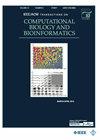Game-Theoretic Flux Balance Analysis Model for Predicting Stable Community Composition
IF 3.4
3区 生物学
Q2 BIOCHEMICAL RESEARCH METHODS
IEEE/ACM Transactions on Computational Biology and Bioinformatics
Pub Date : 2024-09-27
DOI:10.1109/TCBB.2024.3470592
引用次数: 0
Abstract
Models for microbial interactions attempt to understand and predict the steady state network of inter-species relationships in a community, e.g. competition for shared metabolites, and cooperation through cross-feeding. Flux balance analysis (FBA) is an approach that was introduced to model the interaction of a particular microbial species with its environment. This approach has been extended to analyzing interactions in a community of microbes; however, these approaches have two important drawbacks: first, one has to numerically solve a differential equation to identify the steady state, and second, there are no methods available to analyze the stability of the steady state. We propose a game theory based community FBA model wherein species compete to maximize their individual growth rate, and the state of the community is given by the resulting Nash equilibrium. We develop a computationally efficient method for directly computing the steady state biomasses and fluxes without solving a differential equation. We also develop a method to determine the stability of a steady state to perturbations in the biomasses and to invasion by new species. We report the results of applying our proposed framework to a small community of four预测稳定群落组成的博弈论通量平衡分析模型
微生物相互作用模型试图理解和预测群落中物种间关系的稳态网络,例如对共享代谢物的竞争和通过交叉进食进行的合作。通量平衡分析(FBA)是一种用于模拟特定微生物物种与其环境相互作用的方法。然而,这些方法有两个重要的缺点:首先,必须通过数值求解微分方程来确定稳态;其次,没有可用的方法来分析稳态的稳定性。我们提出了一种基于博弈论的群落 FBA 模型,在该模型中,物种通过竞争最大化各自的增长率,而群落的状态则由由此产生的纳什均衡给出。我们开发了一种计算高效的方法,无需求解微分方程即可直接计算稳态生物量和通量。我们还开发了一种方法来确定稳态对生物量扰动和新物种入侵的稳定性。我们报告了将我们提出的框架应用于一个由四个大肠杆菌突变体组成的小型群落的结果,这四个突变体既竞争外部提供的葡萄糖,又相互合作,因为突变体对其他突变体输出的代谢物具有辅助营养作用;我们还报告了一个由九个物种组成的肠道微生物群的更现实的模型。
本文章由计算机程序翻译,如有差异,请以英文原文为准。
求助全文
约1分钟内获得全文
求助全文
来源期刊
CiteScore
7.50
自引率
6.70%
发文量
479
审稿时长
3 months
期刊介绍:
IEEE/ACM Transactions on Computational Biology and Bioinformatics emphasizes the algorithmic, mathematical, statistical and computational methods that are central in bioinformatics and computational biology; the development and testing of effective computer programs in bioinformatics; the development of biological databases; and important biological results that are obtained from the use of these methods, programs and databases; the emerging field of Systems Biology, where many forms of data are used to create a computer-based model of a complex biological system

 求助内容:
求助内容: 应助结果提醒方式:
应助结果提醒方式:


